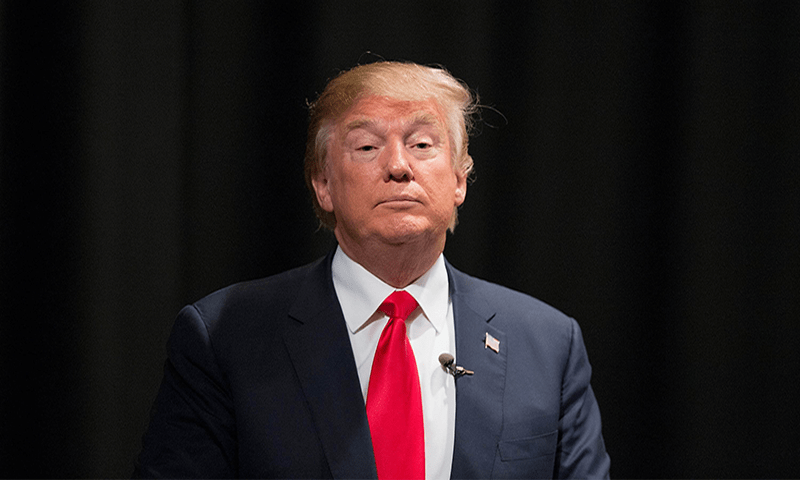
[ad_1]

The judge overseeing Donald Trump’s criminal hush money case has put off ruling on whether the president-elect’s conviction should be thrown out on immunity grounds, enabling prosecutors to weigh next steps following his November 5 election victory.
Justice Juan Merchan had been due to rule on Tuesday on Trump’s argument that the US Supreme Court’s decision in July that presidents are immune from prosecution involving their official acts meant the New York state case should be dismissed.
Instead, Merchan granted a request by Manhattan District Attorney Alvin Bragg’s office to have until Nov 19 to consider how to approach the case in light of Trump’s looming inauguration in January 2025, email correspondence made public on Tuesday showed.
Trump’s scheduled Nov 26 sentencing is now widely expected to be postponed.
Trump in May became the first US president — former or sitting — convicted of a crime when a jury in Manhattan found him guilty on 34 felony counts of falsifying business records to cover up a potential sex scandal shortly before his first election win in 2016. Trump, who pleaded not guilty, has vowed to appeal the verdict after sentencing.
Prosecutor Matthew Colangelo wrote there were “competing interests” between ensuring a criminal case proceeds as usual and protecting the office of the president.
“The People agree that these are unprecedented circumstances,” Colangelo wrote.
Trump is set to be the first felon inaugurated as president after his victory over Vice President Kamala Harris.
At issue in the six-week Manhattan trial was a $130,000 payment made by Trump’s then-lawyer Michael Cohen to adult film actress Stormy Daniels to keep quiet about a sexual encounter she said she had with him in 2006 but which he has denied.
Trump’s defense lawyer Emil Bove wrote that the case ultimately needed to be dismissed to avoid interfering with Trump’s presidential duties.
“The stay, and dismissal, are necessary to avoid unconstitutional impediments to President Trump’s ability to govern,” Bove wrote.
Trump faced four criminal cases
Trump, 78, is hoping to enter office unencumbered by any of four criminal cases he has faced and which once were thought to have threatened to derail his 2024 candidacy to return to the White House after having served from 2017 to 2021.
The Republican Trump has portrayed the hush money case brought by Bragg, a Democrat, and the three other state and federal criminal indictments brought in 2023 as politically motivated attempts to harm his presidential campaign. He pleaded not guilty in all four cases.
“It is now abundantly clear that Americans want an immediate end to the weaponization of our justice system,” Trump campaign spokesperson Steven Cheung said in a statement on Tuesday.
Special Counsel Jack Smith brought two of the cases against Trump, one involving classified documents he kept after leaving office and the other involving his efforts to overturn his 2020 election loss. A Florida-based federal judge in July dismissed the documents case. The Justice Department is now evaluating how to wind down Smith’s election-related case.
Trump also faces state criminal charges in Georgia over his bid to reverse his 2020 loss in that state, but the case remains in limbo.
The Supreme Court, in a decision arising from one of Smith’s two cases against Trump, decided that presidents are immune from prosecution involving their official acts and that juries cannot be presented evidence of official acts in trials over personal conduct. It marked the first time that the court recognized any degree of presidential immunity from prosecution.
In making the case for immunity, Trump’s lawyers said the jury that convicted Trump in the hush money case was shown evidence by prosecutors of his social media posts as president and heard testimony from his former aides about conversations that occurred in the White House during his 2017-2021 term.
Bragg’s office countered that the Supreme Court’s ruling has no bearing on the case, which they said concerned “wholly unofficial conduct.” The Supreme Court in its ruling found no immunity for a president’s unofficial acts.
[ad_2]
Source link






